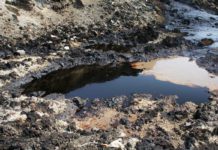A scheme that supports professionals involved in remediation of brownfield sites has proposed an audit process for projects that bring back into use land that has been affected by contamination.
In a move to establish better regulation, the Specialist in Land Condition Register (SiLC) said the scheme will provide a valuable opportunity to support sustainable development and stimulate economic growth.
Chairman Phil Crowcroft said: “The SiLC Register has great potential to contribute towards better regulation by helping regulator and regulated find a common process to deliver sustainable remediation of brownfield sites in accordance with the planning process.
“Whether mandatory of voluntary, it should improve the relationship between all parties seeking to bring land into effective use, for the benefit of communities, the public and the private sectors.”
The benefits of audits would include a simpler and more effective process to get previously developed land back into beneficial use with agreement on risk assessment and remediation established for each project by an audit or review by an acknowledged competent person.
It would also reduce the risk of land being developed in a way that could have legal ramifications in the future or impacts on human health.
SiLC also argues that it would bring a reduction in the risk to developers who wish to develop brownfield sites, making it tougher for cowboy operators and less experienced contractors.
Future European legislation, particularly a Soil Framework Directive, will require a ‘competent person’ to assess soil quality and the SiLC scheme would meet that requirement. “There will be no need to consider the additional costs and bureaucracy of a new scheme for competent persons.”
WHAT IS IT?
THE SiLC scheme was established in 2000 and supports professionals involved in remediation of brownfield sites. It maintains a register of professionals with considerable experience and skill in assessing and remediating land so that it can be used for later development.







